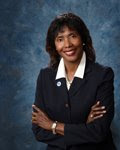 Every year this time, faculty and staff at colleges and universities around the nation are preparing for the arrival of new and returning students for the academic year. For many of us in academia, there is anticipation and a personal sense of renewal with each new class of students.
Every year this time, faculty and staff at colleges and universities around the nation are preparing for the arrival of new and returning students for the academic year. For many of us in academia, there is anticipation and a personal sense of renewal with each new class of students.At Cheyney University, faculty are refreshing courses materials, constructing course packs, and designing their instruction and assessment to respond to the intellectual and emotional needs of this new cohort of students. The admissions and financial aid professionals are busy answering telephones to help families manage the transition into the higher learning community of college. Other middle and senior managers are also busy refining policies and procedures that will guide the campus community through the upcoming academic year.
As I participate in, and observe, these various preparation activities, I realize that one of our challenges is to determine how we can contribute to the development of a sense of purpose in our new and returning students. This sense of purpose will, hopefully, be ignited by the general education curriculum and, appropriately, expanded and enhanced by an academic major and interactions with faculty and mentors.
On the surface, many students will attest that they come to college to pursue specific careers, or to increase their earning potential over their lifetimes. However, if we delve beyond their veneers, we discover that many of our students come to college searching for a future, searching for their passions, and searching for something that is bigger … something that they can commit their talents and affinities to – a sense of purpose. English novelist Mary Wollstonecraft Shelly (1797-1851), the author of the famous Gothic novel, Frankenstein, is quoted as stating, “Nothing contributes so much to tranquilizing the mind, as a steady purpose – a point on which the soul may fix its intellectual eye.”
As I reflect, it seems that it is the sense of purpose and passion that is the ultimate goal of higher education—possibly it is the ultimate goal of the human existence. If we succeed at Cheyney University, our students will leave with a vision and sense of purpose that is bigger than the acquisition of material possessions. Possibly, the sense of purpose they gain at Cheyney University will result in being a better neighbor, in developing a more enlightened view of the interconnectedness of all humans, and in participating more aggressively in sustaining the environment for future generations.
Maybe this is the purpose of college.
I hope that all of us, who see the education of these students as our passion will move forth with a steady sense of purpose.
Michelle Howard-Vital

